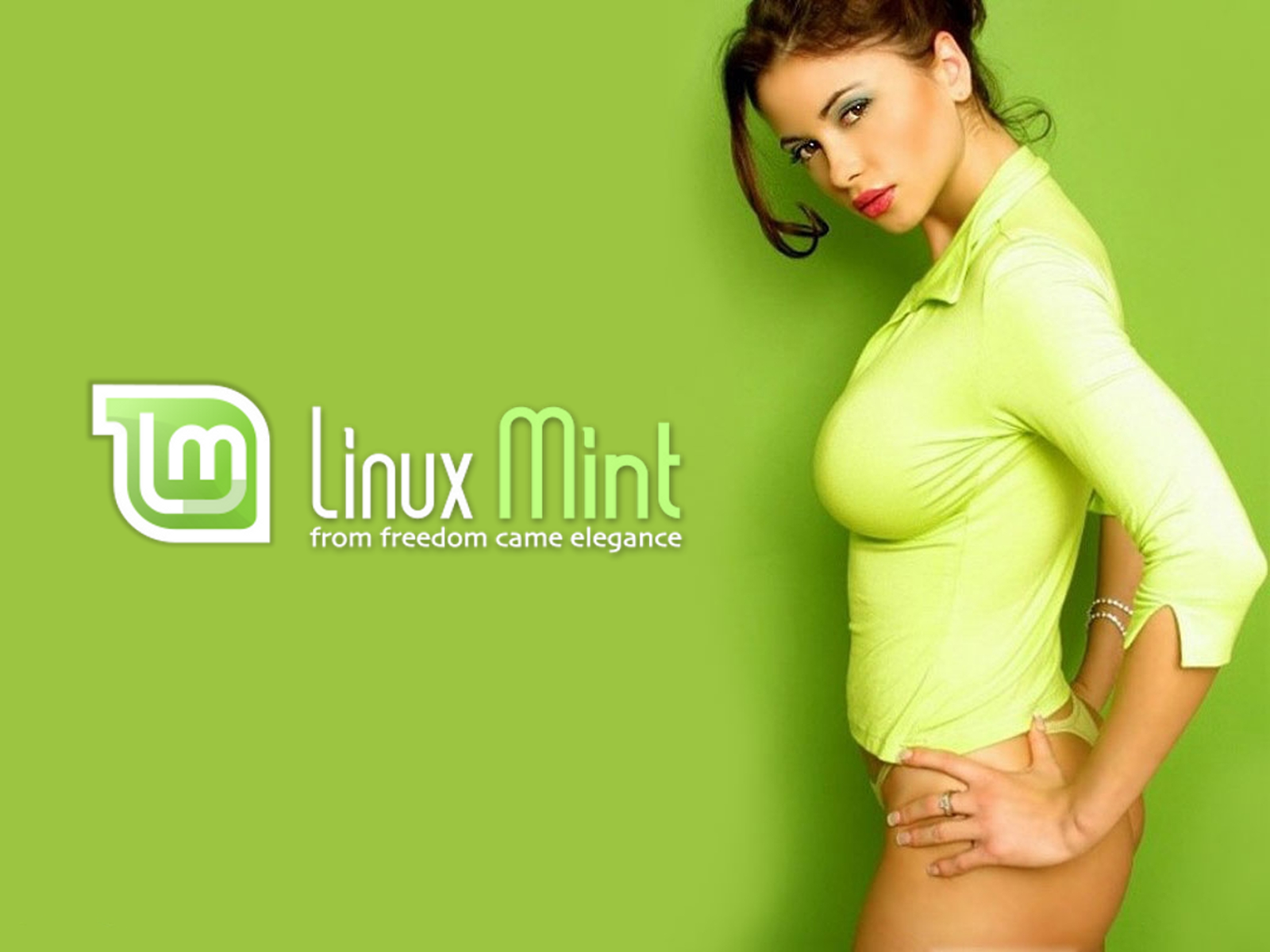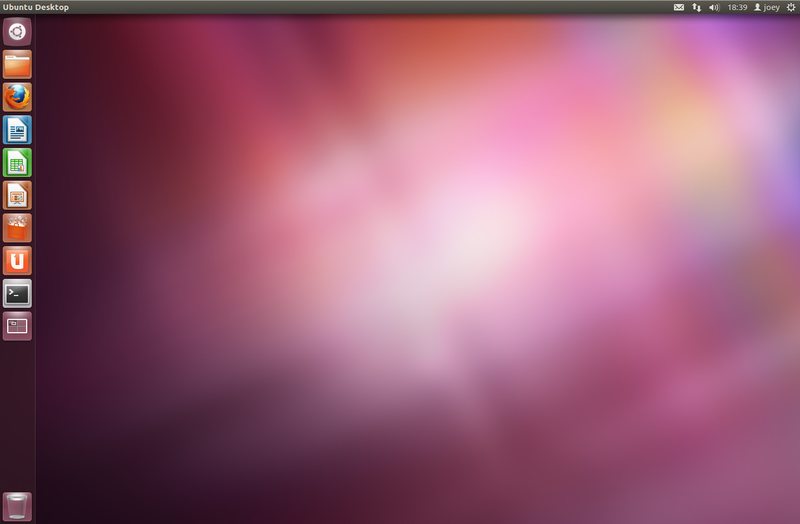The reason for posting this, is because I have the feeling that something isn’t going quite right to our favorite OS. This is strongly my personal opinion and of course I retain every right to be wrong 🙂
PART I THE MARKET
Some Stats
Statistics is probably the best way to lie, but lies make you wondering…
Linux distros are free products that are not for selling on shelves. Thus there is not a market, so there is no market share. It is a trend share more likely.
It is hard to estimate how many Linux boxes are out there -speaking about Desktop. Statistics shows 1%-5% of all computers run Linux. An average would be 3%. This can be true, this can be false, but it doesn’t really matter a lot as it is low number anyway. What really matters is the growth of Linux.
Following again some statistics @ w3schools and hitlinks we see a constant growth rate of ~0.06 a year, from 2004 till the end of 2011.
I wasn’t able to populate Ubuntu’s trend share among other Linux distributions but my guess is that is somewhere around 60%, or maybe a bit more. I might be wrong, but this number is huge anyway considering there are 100+ distros.
Ubuntu’s growth trend share is superior to the overall Linux growth trend share. Also the Linux trend share growth rate hasn’t changed since the appearance of Ubuntu. It is still at ~0.06%. That leads to the conclusion that Ubuntu actually didn’t bring any new users to Linux Desktop, it just stole users from other Distros.
Why Ubuntu
The question is why. There is a stereotype that beautiful people are more intelligent. I think that applies for software as well. Ubuntu from its very first day (20 October 2004), was the most beautiful distro, starting from installation screen. Yes the installation process that many people think it exists just to get the job done. Wrong, installation is the first impression.
Apart from the fancy installation screens, Ubuntu was also the most solid, stable, user friendly and cool distribution. Today it is still solid, stable, user friendly and has a huge user base, but is it still cool?
- Zombies are cool, so Ubuntu?
Why Linux
Well, the open source factor provides a romantic point of view. The real reasons for me using Linux for first time (in 1998) were that I wanted to be different from others and I also I fell in love with terminal at first sight.
Open Source ideology came after. I loved open source because of Linux and I didn’t use Linux because it was open source.
I think that if today I was 15 years old and had my first Ubuntu PC, I wouldn’t care much for open source. That pretty much happens with people that use Android. Isn’t it a fact?
I guess that Ubuntu has put out a part of the Linux sparkle. Is it because Ubuntu just works out of box? Is it because you don’t need a terminal in Ubuntu? Is it because everyone can easily get and use Ubuntu these days? Well I think there is something more than these reasons..
Open Source
Open source is all about sharing knowledge and ideas in a libre way. People give their knowledge for free to other people, and other people using it, improving it and sharing it also. That circle leads us to awesome software creations and brings people closer through collaboration.
Having a book and not reading it, is a waste of money. Similarly having a piece of open software without having a clue of how it works is a waste of open software momentum.
So, should all the people that use Linux know how to hack Linux kernel? Nope. But for these people having a close source kernel, or an open source kernel doesn’t practically matter.
By getting an open source product over a commercial (except that you save some money) you give your vote to Open Source. But you have to vote for the right reasons. That means that you should be aware that you’re using an open source software, and what Open Source means.
I think that Canonical doesn’t do enough to highlight and spread the Open Source spirit.
And this is the real reason why Ubuntu kills the Linux sparkle.
Linux Desktop doesn’t necessarily helps open source evolution
It is hard to define what actually a Desktop OS is. Is it the kernel? Is it the kernel with a DE? Is it the kernel with DE and some Apps that we can use to do our job?
An architect doesn’t care about the OS but cares for the actual Design App. So if Autodesk products run in Windows he will use Windows, if they run under Linux he will use Linux, but what if Autodesk runs on both platforms?
As Linux grows and gains more popularity, commercial companies invest and publish their software in it. Is that good for Linux? Sure! Is that good for Open Source? Not necessarily…
Just a small average of Windows users use Gimp, because they can have Photoshop. And if they can’t afford to buy it, they can crack it. If Photoshop comes in Linux, Gimp will have serious competition that will not able to follow.
Think about Linux gaming… Open source games will die instantly if big game publishers will release their games for the Linux platform.
So can’t open source compete commercial on desktop? Technically it cans, politically it cannot, but this is another story. The fact is that today open source desktop Apps lack features-completion behind their commercial brothers.
Canonical knows this and tries to build a platform that will run commercial software. Canonical is just using Ubuntu as a mean for promoting their cloud services, same way as Google does with Chrome. Canonical invest more on cloud rather on Desktop, Canonical invests more in commercial software rather in open developing.
If Linux fulfill its dream of 90% market share and 90% of Linux Apps are commercial would that be an Open Source win?
Ubuntu Market Share
Canonical announced that 5% of the total PC sales in next year will run Ubuntu. That automatically creates a market share for Linux. More correctly it is a market share for Ubuntu, as Canonical wants to hide the “Powered By Linux” feature and promote Ubuntu as an independent OS.
It is totally unbelievable that a company wants to promote a software that owns less than 5% of code, as “Our Product”. Wouldn’t it be better if a community distribution such as Arch had been shipped by major manufacturers instead of Ubuntu?
Of course, we can’t be so harsh on Ubuntu, this would be unfair. At the end of the day Canonical will bring millions of users in Linux Desktop, so that benefits the whole open source ecosystem. GNOME developers (and many others ofc!) will be happy that many people will use their work, and more people will get involved with Open Source.
So, what is the reason Ubuntu will be finally shipped on PCs, after 8 years of existence? I seriously doubt that this is an Ubuntu success. That is an open source success that finally in 2012 is on a point that can shout out loud that it possesses the best operating system out there.
Canonical reaps out that success for its own benefit. I just hope that Canonical will contribute back to Open Source a bit more, as it isn’t -for now- a quite important direct contributor.
PART II THE SPIRIT
Losing Skills
In 2004 I had Gentoo and Arch. I also had an LFS. I think I had LFS from 2000 till 2004 when I installed Ubuntu. Back then, two typical procedures that all Linux users had to know, was how to edit their X11 config and how to configure/compile Linux kernel.
I had edited xconfig so many times that I could edit the whole file from scratch without a backup.Kernel configuration was a quite enjoyable activity, by checking and unchecking modules and reading about the new experimental features.
Well, 6 years after of constant use of Ubuntu (I use Fedora since last year), if I have a X Server failure I will be screwed. I wouldn’t know what to do, but starting a live cd and look on forums.. Sad…
Does the knowledge of repairing a broken Linux system worth the time cost of acquiring it? Well, it depends, personally I would say yes.
Beauty
And beauty is the eye of the beholder. That simply means that different people have different ideas about what is beautiful and what is not. In our case we define beautiful as something that delights the sense of sight.
People pick their things -from their kitchen bins and shoelaces, to their clothes and cars- mostly accordingly to “beautiful” and “unique” factors. Even if there are endless varieties of clothes, cars, furnitures etc, people are yet unsatisfied with the options. They say “Beauty makes the world go round”, can anyone argue with it?
- Message is clear, from Freedom came elegance.. and nice wallpapers 🙂
So, there is absolutely no way that all people fancy the same desktop and also there is absolutely no way that people don’t care about their desktop look – except if they are mentally ill.
Paradoxically the majority of people use their vendor defaults on their computers. That applies particularly for Windows and Mac users, but lately that phenomenon has spread to the Linux Desktop World.
So are all these people mentally ill? Maybe, but the truth is that they are unaware that they can customize their desktop. So they just go with the Defaults..
.
Ubuntu Default
First off, I don’t want to accuse Ubuntu. Ubuntu has to ship some artwork / themes / options / DE that it will be named default by definition.
But I want to accuse all these people that use Ubuntu Defaults to present their tutorials, videos, artworks, software, or anything else to a broader audience. They just harm Ubuntu and they harm Linux in general.
- Isn’t it scary that we might see the same screen on TV?
I am sick of seeing the above image in every Linux blog & Linux youtube. It is like the world has run out of backgrounds.This is a Mac/Windows culture where people don’t even know how to change wallpapers. If you check back a few years ago, there is no way you’ll find a deja vu Linux DE on any screenshot…
In Linux we are lucky to have hundreds of options to customize our -everyday 4+ hours of use- desktop but some people want to steal our freedom of choice in a well set up conspiracy theory by keeping secret the alternative options without even knowing that this is what they are doing.
Besides that, it is offensive to present some commercial company work, instead of presenting the work of the community that is the driving force of Open Source. Please let people know that in Linux there is more than Ubuntu default theme, there is more than Unity, there is more than Ubuntu.
Moreover it is bad for each person’s imagination to watch same thing every day, and that drive us on a pathetic point where we start to get used of it.
Further analysis about why people use defaults is out of the scope of this post, but it worths to google it and read more about.
Ubuntu Zombies
The term Zombie is often figuratively applied to describe a hypnotized person bereft of consciousness and self-awareness, yet ambulant and able to respond to surrounding stimuli.
- Hypnotized citizens are the best workers and market victims
Well that is pretty much the point of this post. If we keep up like this, in a few years from now, we will see people in Linux World that if they lose a shortcut from their desktop, they will be doomed without knowing what to do. We’ll see people having the same behavior frond of the same computer environments using the same Apps, like hypnotized workers.
Open Source is meant to make people smarter and no zombies. Open Source is meant to give people choices instead of one way paths. There is no such thing as the best and only solution.
Overview & End
I honestly doubt that Canonical has helped so greatly the Linux DE, that people have to promote Ubuntu so much. I also don’t believe popularity of Linux helps proportional the open source ecosystem outside of strictly Desktop.
I want to ask all people that write on public view to stop using Ubuntu Defaults and show to their readers that there are more choices.
Do not forget that software is a 500 billions USD industry and is the engine that drives all business decision making. It is a key factor of all kind of systems: transportation, medical, telecommunication, military, entertainment.. the list is almost endless. Software affects nearly every aspect of our lives, don’t snub it, don’t take it lightly. We have to be fully aware what we using and what are the alternatives. Moreover is better to give this power to communities, to us, rather on faceless companies.
I recognize the contribution of Canonical on formation of strong open source communities that can solve any issue, but not much more beyond that.
Finally I want to advise the guys that start using Linux for first time, to use Arch or Gentoo if they want to taste the joy of open source. Of course love hurts 🙂
*I tried to keep things as short as possible, without fully establishing my thoughts. You have the freedom to form your own opinion without the influence of tedious justifications 🙂










